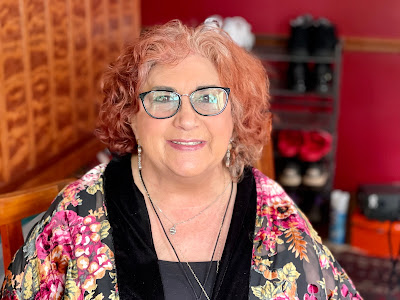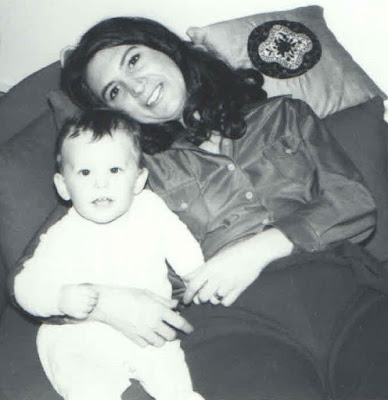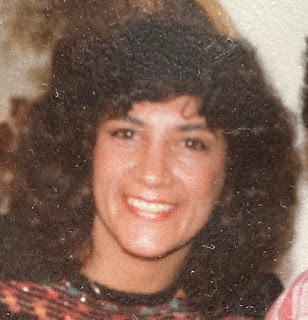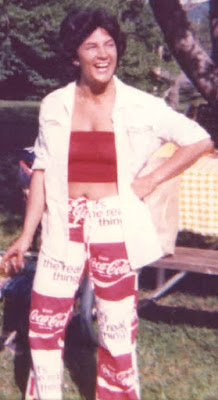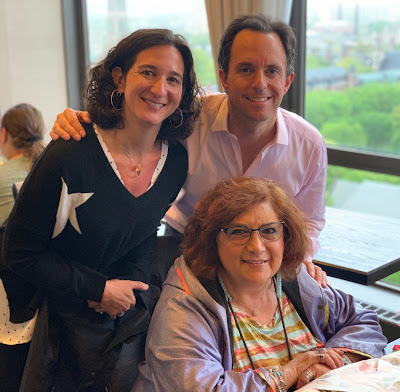During my first elementary school assembly of the 2023-24 school year, in Forsyth County, GA, I (as usual) told the audience that the son of Batman co-creator Bill Finger was gay—and the batshit immediately hit the fan.
- A parent complained after a talk in Illinois.
- Ugliness erupted during a talk in Maryland.
- A principal in Michigan tried to censor me.
However, I’ve also seen growth:
But in Forsyth County, the situation escalated as it never had before.
The gay play-by-play, day-by-day:
I went to Georgia to speak at three Forsyth elementary schools, one per day, three talks per school, one grade per talk (3rd, 4th, 5th).
Monday 8/21/23, school 1: Sharon Elementary
As mentioned above, in my first talk here, I said “gay.”
Afterward, my host, the librarian, expressed concern due to the intolerant history of the community. I asked her to invite the principal, Brian Nelson, to the second talk, which she did. He came shortly after I’d started. He and other staff conferred in the back of the room.
Midway through my presentation, he handed me this note:
I was not surprised. I was infuriated.
Because I did not want to create a stir in front of the kids, I acquiesced. Then I was infuriated at myself.
Afterward, the principal and I had a civil 40-minute conversation in the library. He asked me not to say “gay” in the last talk, citing heated school board meetings. Like the librarian, he exuded nervousness.
I said we cannot kowtow to those who hate/negate/discriminate, no matter how loud and unrelenting that faction is.
I gestured to a displayed book about professional baseball players and trotted out the refrain that exposing kids to that book does not mean you are trying to turn them into baseball players.
He was not swayed.
He is Black (in the south) and I am Jewish; I said that our people have been persecuted throughout history, and we cannot let it happen to others now.
He was not swayed.
I said that in my 20 years speaking to kids of all ages in 30+ states and almost 20 countries, I’ve been asked to leave out the word “gay” a handful of times but did so (again against my better judgment) only once, due to extenuating circumstances. I said you don’t want your school to join this shameful list.
He was not swayed.
So because I was already on site and some kids had already heard my presentation, I said I would skip “gay” one more time, emphasizing that I was vehemently morally against it.
He seemed deeply relieved.
That night, Principal Eric Ashton from school 2 called to ask me not to say “gay” at his school. When I pushed back, he said I’d already agreed at Sharon.
Tuesday 8/22/23, school 2: Daves Creek Elementary
I did not say “gay.” I was not okay with it.
Wednesday 8/23/23: before school
I woke up to a journalist request for an interview about my “recent reading at an elementary school and the school’s subsequent apology to parents after your (factual) comment about Bill Finger’s life.”
How did the press know? And what apology?
I searched online to find not one but two stories about this had already run—and neither source had contacted me for a statement:
I tweeted (Xed) both outlets: “When you are covering a story of an author being censored at a school, it’s journalism 101 to SPEAK TO THE AUTHOR WHO WAS CENSORED.”
Here is that apology, which the Sharon Elementary principal had sent to his school families (which obviously include people in the LGBTQ community) on Monday:
Here is a progressive group called the Forsyth Coalition for Education condemning the apology:
Here is Forsyth superintendent Jeff Bearden backing up the principal:
I was livid.
The Sharon principal apologized that I said “gay,” as if I hurt people. That was backwards. What hurt people was his apology.
Before heading to school 3, I emailed the superintendent and Jennifer Caracciolo, Forsyth schools Chief Communications Officer, to invite them to attend one of my talks that day. Jennifer replied that she would be at talk 2.
Wednesday 8/23/23, school 3: Settles Bridge Elementary
Immediately after arriving, Principal Amber Lamb pulled me aside to ask me to follow the same procedure I did at Daves Creek. I asked if she meant don’t say “gay” and she indicated yes.
I asked “If one of your students asks me if I’m married, may I say I have a wife?”
She didn’t say no.
In my regretful effort to be a “respectful” guest at Sharon, I had a momentary lapse of backbone and agreed to prioritize the objections of a vocal and virulent adult minority over the well-being of their kids. But my conscience had come roaring back and I said I won’t be doing that again.
She said that they’d invited me to promote a love of reading, writing, and research. I said that’s precisely what I was there to do.
Then, somehow, we were walking down the hallway to the gym and soon after, I was delivering the first of my three scheduled talks. It was an emotionally intelligent, enthusiastic audience. They cheered and applauded not only when I finished but also at various reveals throughout. They got it.
I said “gay.”
I noticed no reaction.
My presentations conclude with a Q&A session; it’s built into the schedule. When the kids were applauding at the end, the principal stood beside me. I asked her if we had time for questions—knowing we did—and she said no. Sensing more (preemptive) censorship, I turned to the kids and asked “Y’all want to ask questions?” The room screamed “Yes!” and hands shot up.
The principal—who, you may recall, had asked me to promote a love of reading, writing, and research—stuck with no. It’s harder to promote a love of reading, writing, and research in kids when you can’t answer their questions about those topics.
This group of kids left and the second group did not arrive as scheduled. I was told they were sorting out a scheduling glitch. Amber, Jennifer, and I were alone in the gym.
Amber reiterated that I would have to adhere to their “standards.” I said “You just saw how these kids responded to my story. And that’s your first comment?” She seemed flustered.
I pointed out that her students clapped wildly when I showed an image of a police report. A dusty old document. Handwritten. You wanted to pump them up about research, right?
She complimented the talk, then again said (paraphrasing) “don’t say ‘gay.’”
I said I will no longer agree to that.
Jennifer said it’s about standards—sexual orientation is not part of curriculum for elementary students. I said neither is Batman—but more to the point, I reminded them that I did not give a talk on sexual orientation, and that sexual orientation is not sex.
They were hiding behind “standards” to deflect that prohibiting the word “gay” is discriminatory.
Jennifer also said it’s about age appropriateness. She gave an example—which she would later repeat to press—that we adults would not describe the horrors of the Holocaust to kindergartners.
As if their talk track wasn’t already misguided enough.
I shut that down without mercy, asking her not to compare how one person loves another to genocide.
I tried to convey what I thought was already obvious: the benefit of my presentation for hundreds of kids should far outweigh the time and energy required to field outraged calls they would invariably get from two or three or even a dozen parents. I felt terrible that these big-hearted students would be denied a special experience due to the prejudices of their supposed caretakers.
Yet open-minded people must go into communities where intolerance is legislated or otherwise encoded and speak up within that community. We can’t stay away in protest or out of disgust, because then people who need our message may never get it.
The two administrators and I spoke for what felt like ten minutes. When I finally accepted that I would not be able to assure them that my content is fully appropriate, as I’d managed to do in other scenarios, I said that I could not give my talks. They agreed.
Whether my presentations were censored or cancelled, it would shortchange the kids. Ultimately I felt that the best way to help those kids would be to leave.
So I left.
My parting shot to the adults: you are on the wrong side of history.
By the end of that day, I’d met with four of the many members of the Forsyth Coalition for Education and spoken to reporters from four outlets including the Atlanta Journal-Constitution.
Then came the public response:
(grammatically corrected) excerpt from a direct message on Facebook:
Do you have a criminal record? Do you get some kind of satisfaction from talking to 8-year-olds behind their parents’ back? Some people are calling you a groomer. Is that what you are?
You are a villain.
Here’s an idea: instead of sneaking your bizarre, obsessive view on sexuality into your speeches, why don’t you ask parents for permission to have a conversation about sexuality with their child while they aren’t around. How do you think that will go?
It wouldn’t go well. Because only perverts would ask that.
Several Forsyth folks showed their disapproval by reacting to dozens of my Facebook posts with the laughing emoji, till I blocked them.
I directly replied to none of the vitriol—except this Instagram comment:
Schools are not the place for what he is promoting. Take it somewhere else.
me:
I was promoting persistence, primary research, reading, speaking up for others, giving credit where it’s due, and tolerance. Which topic in particular do you think I should take somewhere besides schools?
On the Facebook page for the first of at least two Forsyth County News articles about this, I posted this comment:
I’m the author who said “gay” in talks to elementary students. I also said “Every change in history, no matter how big, starts with one person.” I’m glad to see there are many people in this conversation who are speaking up for marginalized communities.
message from a Forsyth County parent:
You gave a presentation at my son’s school (Sharon Elementary). He came home raving about you/your book. Literally, he dropped his backpack and then proceeded to deliver a 15+ minute speech to me about the amazing author visit. I don’t think he’s ever connected that much with an author.
I replied to the principal[‘s email] with my concerns that the word “gay” required an apology (especially in light of the fact that my kid hears it at school about five times a day on average—spend 10 minutes in the classroom and one will know that it seems to be the insult of choice amongst the upper elementary set: “that’s so gay,” “your mom is gay,” etc.). At least I know that one of the times he heard it on Monday, it was delivered in the manner in which it should be: a harmless fact.
message from a Forsyth County resident:
Hey, buddy…I see you’ve become infamous in FoCo. :) I know what it’s like…I’m a drag queen here. I hope you know we’re not all insane people…
message from a stranger from parts unknown:
The New Abnormal (The Daily Beast)
available wherever you stream podcasts; here, my segment begins at 40:57
(part of a year-end round-up of censorship in education)
And twice in the New York Times daily newsletter “The Morning”:
I emailed this to the five leaders involved:
Hello Jeff, Jennifer, Brian, Eric, and Amber,
The response to you putting standards over empathy and honesty in Forsyth County schools has been overwhelming—and overwhelmingly condemned, from both friends and strangers, Forsyth parents and people worldwide.
Here, however, are comments I’m getting from a small group of people who agree with your decision (none of whom heard my talk, read my book, saw my film, or met me):
[see above for images of the negative messages]
Groomer. Villain. Pervert. Creep. “Who raised you?”
I came to your community in good faith to share an inspirational message. Brian, Eric, and Amber: you experienced that firsthand and saw the enthusiastic way the kids reacted. Even the kids who heard “gay.”
The inaction of Forsyth County leadership sanctions the defamatory (and, objectively, unhinged) accusations your supporters are publicly making about me.
These are the people whose position you are protecting, even though these are not the people whom you make feel unwelcome in your district?
These are not the victims. They have not and will never suffer because other people love differently than they do. Apparently the Forsyth County standards also prohibit the Golden Rule.
When you have to choose between the comfort of tolerant or intolerant people, and when one of those groups is in real danger, there is no choice.
You gave in to the wrong side, and if you continue to do that, your legacy will be on the wrong side of history. Plus upholding discriminatory practices like you did this week will drive more and more good educators and families from your district.
But you can still turn this around by doing the following:
- apologizing to your community for the apology
- apologizing to your community for censoring an established author who’s been doing this sensitively across 30 states and nearly 20 countries for 20+ years
- challenging the standards that stigmatize the word “gay” in a country where same-sex marriage is legal and a county where gay people live
If your own conscience is not screaming at you to try to heal the wounds you’ve created, hopefully the compassionate perspective of the majority will.
First they came for the socialists, and I did not speak out—
Because I was not a socialist.
Then they came for the trade unionists, and I did not speak out—
Because I was not a trade unionist.
Then they came for the Jews, and I did not speak out—
Because I was not a Jew.
Then they came for me—and there was no one left to speak for me.
With apologies to Olivia Rodrigo:
10/1/23 addendum: Just over a month later, it happened again, in Texas.
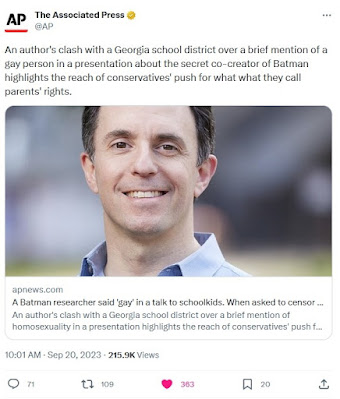



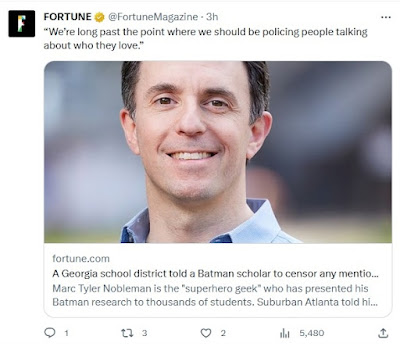


















%209-20-23.jpg)






